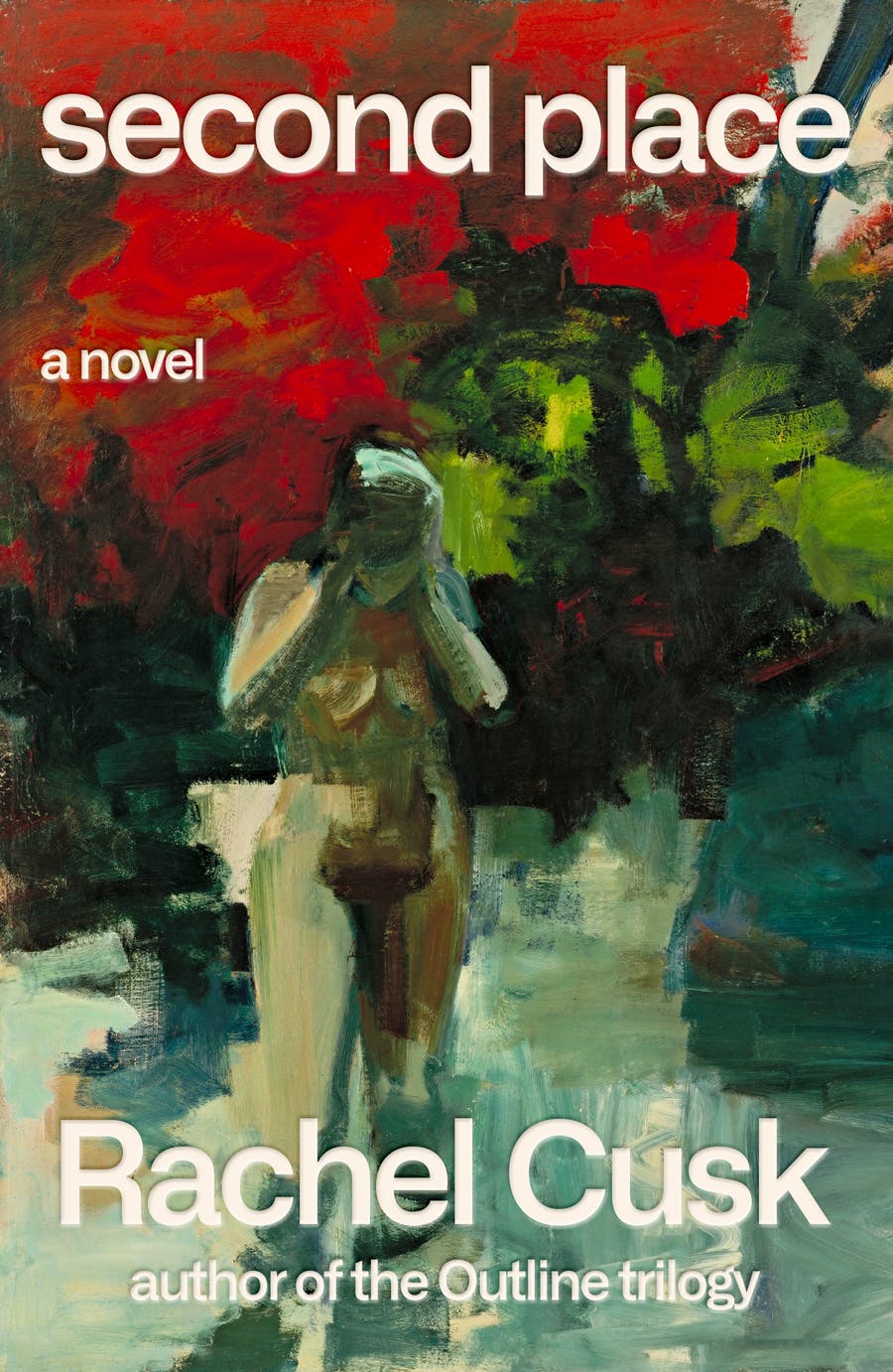Second Place by Rachel Cusk (FSG)
Amid an ongoing pandemic and an unrelentingly polarized citizenry, basing a novel on a residency gone awry might seem an odd choice as a follow-up for a novelist whose previous work—the Outline trilogy—is widely considered an all-time great. Yet what Rachel Cusk manages to achieve with the premise in Second Place is masterful, with both topic and sociopolitical environment subdued in the face of her ambition, inventiveness, and willingness to wield contemporary issues in the service of crafting unique narratives that offer insight into human frailty (as opposed to narratives that justify their their presence by referencing the times).
It is vulnerability, after all, that attracts M to L’s paintings. On a trip to Paris, rejected by a writer whose mere attention would’ve caused her to cheat on her husband Tony—at home with Justine, their young daughter—M comes across an ad for L’s gallery exhibition. Portraits of women (she is one) and landscapes (the “second place” of the book’s title is a house-turned-artist-space in the woods, where her family lives) convinces M to begin a correspondence with L, which eventually leads to an invitation for L to come and work at the second place. It’s rejected initially, but again: vulnerability. The COVID-19 economy for a time wiped out any opportunity for artists to display their works for sale, and thus earn a living. L’s boorish, but honest, question about accommodations jumps out from the page like a fly buzzing at one’s ears: “Do I need any money to be there?”
L (and Brett, his wealthy, uninvited companion) proceed to wreak havoc on M’s domestic life. A previously isolated Justine gets a glimpse of the good life under Brett’s wing; Justine’s temporarily live-in boyfriend, Kurt, gets his novelist dreams eviserated by L. And poor Tony, forced to see his wife’s dissatisfaction and self-consciousness about their middling cultural capital up close. One wants to emphasize with such a chaotic and unintended situation for disrupting M’s peaceful environment. And yet. For all of the righteous vitriol that Cusk’s narrative directs toward Second Place’s guests, M’s monologue to her confidant, Jeffers, reveals the true goal of her invitation: for L to create a work of art that shows her a quality about herself that she hasn’t been able to access on her own. Pitiful, for sure, but not exactly benevolent. Relaying the inconvenient message that the art world is riddled with selfish people who facilitate creativity for spurious reasons might not be the message readers want to hear when aspects of society previously taken for granted are crumbling. But that doesn’t make it any less true—or Cusk’s position as a major English novelist any less apparent.
J. Howard Rosier is the chair of the criticism committee at the National Book Critics Circle. He teaches in the New Arts Journalism Department of the School of Art Institute of Chicago.



